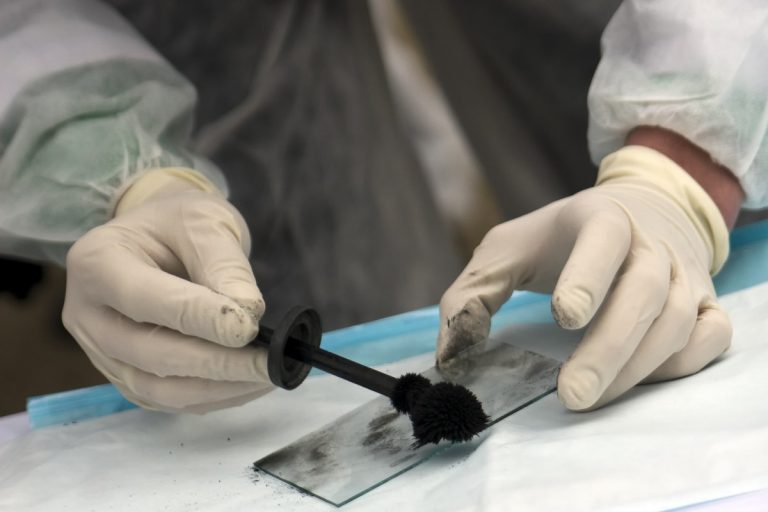
“I felt this University was very focused on making students job-ready, which is very important to me.” – Katherine Miller, Bachelor of Science, UTS Science
Shaped by a bold vision to become the world’s leading university, the University of Technology Sydney (UTS) is a hub of thought leaders, innovators and collaborators – a proven fact as UTS is ranked #1 young university in Australia for three consecutive years, and 15th in the world in THE’s respected Top 100 under 50 University rankings table.
Located in the vibrant Sydney city business district – ranked among the Top 10 most liveable global metropoles – UTS makes the most of both the creative precinct and thriving CBD that surrounds its stunning campus, presenting an unparalleled environment that inspires 40,000 students to live, learn and grow.
The Faculty of Science at UTS (UTS Science) is practical, innovative and research-driven. It’s two world-reputed schools – the School of Life Sciences and the School of Mathematical and Physical Sciences support its teaching and research.
Here, students receive an industry- and practice-led education, where hands-on, practical opportunities are daily events, meaning students apply theories to address real-world problems that impact the community.
UTS Science is the first university in Australia to develop and teach a forensic science undergraduate degree, cementing the fact UTS is a true trailblazer in the forensics field.
Bachelor of Forensic Science
Instilling a firm foundation of knowledge and expertise in forensics, this degree program rewards students with the tools and skills to be professional forensic scientists.
Rigorous in delivery and comprehensive in design, students gain in-depth understanding of this revolutionary science, evolving into graduates that are well-equipped with critical-thinking and problem-solving skills that leave them highly-valued and sought-after anywhere in the world.
This pioneering course allows students to pursue one of four majors, choosing to specialise in either biology, chemistry, crime scene investigation (CSI) or digital forensics. Each distinct focus can be broken down into a number of sub-specialisations, including:
- Chemistry – toxicology, recreational drugs, fire and explosion investigation
- Biology – DNA, bioinformatics, investigation of human remains
- CSI – a combination of Chemistry- and Biology-based elements
- Digital Forensics – digital trace and identity, network security, web monitoring and investigation
“I love the practical, hands-on nature of the degree,” says Josh Klingberg, Bachelor of Forensic Science and Applied Chemistry student at UTS. “You get to do some experiments in high school but they are few and far between.”
Above all else, the UTS Bachelor in Forensic Science provides thorough insight and awareness of how forensic science can be used not only to solve, but also prevent crime.
Bachelor of Forensic Science/Bachelor of Arts in International Studies
This programme has been expertly combined to present the full forensic science curriculum, with the popular option for participants to study full-time at an overseas institution during their fourth year.
It’s an unrivalled opportunity that immerses students in a brand-new language and culture as their arts degree major, opting from a range of exciting countries like Canada, France, Japan, Mexico, Germany and Italy.
Bachelor of Forensic Science/Bachelor of Creative Intelligence and Innovation
Also offered on a joint-degree basis, this programme instils multiple perspectives from the diverse fields of forensics and creative intelligence. It’s a course that cleverly integrates a full spectrum of industry experience, real-world projects and independent proposals, empowering students with the understanding needed to address the complex challenges and untapped opportunities of the modern world.
Master of Forensic Science
This programme attracts two groups of students – the professional scientists looking to invigorate industry-focused skills for career advancement, and students considering the pursuit of a world-class research degree.
With its compulsory core of professional subjects that remain relevant to all science disciplines, this course undoubtedly imparts everything you need to succeed as a seasoned and informed scientist, encouraging you to engage in research and stay present, as well as interact with corporations, industries and government organisations.
UTS Science: A figurehead of impactful research and practice…
Investigation of the complex forensics discipline has led to research that has revolutionised the field, putting UTS Science at the top of its game in this area. UTS Science’s researchers have led the charge in the development of crucial technologies like Lab on a Chip, the Cyber Electronic Nose (CSIRO), and the cutting-edge ‘Stabbing Machine’ – complete with interchangeable knife holder that has the power to simulate real knife crime events.
These game-changing technologies – constructed and refined by experienced staff and students at UTS Science – have redefined the field of forensics, helping to diminish crime and direct justice on a global scale.

“My course at UTS Science gave me a good grounding in a wide variety of forensic disciplines, allowing me to explain concepts accurately and on a level the students would appreciate,” says James Finger, former student of forensics at UTS, now working as a Crime Scene Officer for the NSW Police.
“The highly practical and hands-on nature of my degree…prepared me well for both the crime scene and laboratory environments I now find myself in, and I’m loving being back in ‘real’ forensics with the Forensic Services Group,” he explains.
“There are a good number of UTS graduates among my colleagues and throughout the Forensic Services Group – I seem to be bumping into them all the time,” Finger concludes.
“Science communication is an increasingly important field, and people who can act as the bridge between the sometimes complex world of science and the public have great opportunities in many work places.”
Follow UTS on Facebook, Twitter, YouTube, Instagram and LinkedIn
Liked this? Then you’ll love these…
5 APAC Science Schools instilling innovation in their students
Ensuring Innovation: Universities producing job ready Biological Science graduates








